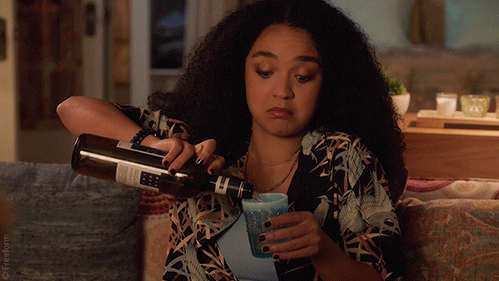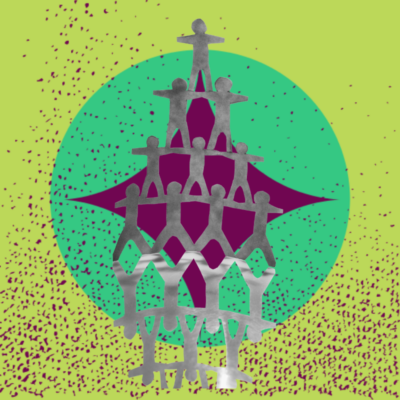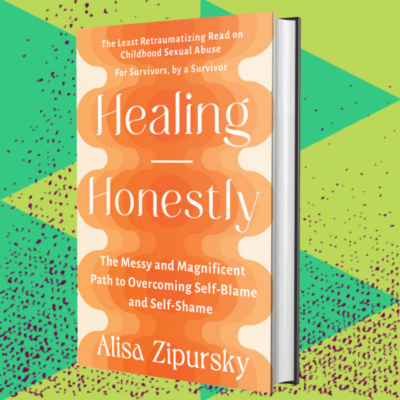I received this question from Sydney Gal (she/her) from Sydney, Australia:
My question is about how to deal with an unsupportive family. Or maybe how to deal with the fact that your family is unsupportive. My abuser is my father, who (surprise, surprise) denies the abuse, my mother supports him totally, one of my brothers says he thinks “something” happened (but apparently not what I told him happened), the other says he wasn’t there so how can he know what happened, and in a recent conversation my sister said I should look into false memory syndrome.
Anyway, I can see that the less I look to my family for belief and/or support, the better I do, and that the most important thing I can do is believe myself, but … it’s a journey. If you felt like writing about that, I’d love it.
Hi Sydney Gal, I’m so glad you asked this question. I know there are so many other people dealing with the exact same thing in their families too. As extremely isolating as going through that is, I promise you, you are never alone in this.
Our family’s denial of our sexual abuse has literally nothing to do with us, even though it hurts so much
There is so much I want to say about this. Truly, an entire book’s worth of things I want to say about this, hence the upcoming book. But the most important thing I want to say to you is that their denial has literally nothing to do with you.
To be clear, their denial hurts you, so deeply. And it’s never okay that they choose to live in denial to protect themselves from the truth over supporting you. But the reason why they do this has actually nothing to do with you. There are no words you could’ve chosen differently, no proof you could have magically had, nothing you could’ve done that would’ve influenced their behavior right now. Trust me, I’ve seen this so many times in my own life but in thousands of other survivors’ lives. We can never under-estimate the power of denial by our families to selfishly protect themselves from feelings of guilt, shame and responsibility.
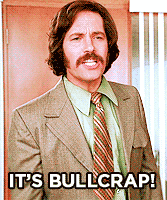
When I have dealt with unsupportive family members, I have found it helpful to sometimes step away and ask myself, “What motivations do they have to deny my truth?” In order to help me remember that this has to do with their bullshit, not mine. Here are some of the answers to that question I’ve had over the years:
- They don’t want to face their own complicity. They are denying my truth because then it means they’ve failed to protect me as the responsible adult in my life, and that reality would shatter their own world view and how they understand themselves as a parent/uncle/grandparent etc. So, to protect themselves from that guilt, they choose not to believe my truth.
- They are survivors of abuse and this is how they cope. They are denying my truth because they, themselves, may be survivors of abuse either from the same abuser as me, or from someone else in their childhood. Their way of coping with being a survivor is to repress everything. By me living my truth out loud, it is in conflict with the way they’ve figured out how to survive, which is to keep everything bottled in, stay silent, and never speak of any abuse. It doesn’t make it okay for them to do this, but it is helpful to see it isn’t about us.
- They are denying my truth because they would rather protect the status-quo than protect me. If they believe me, then they have to accept that a family member abused their own child. Then they may feel compelled to then divorce from that person, or not be around them anymore, and shift the structure of the family. It is always easier to protect the status quo than to protect us.
- They may be dependent on the abuser. Some people who deny our truth may be financially, emotionally, and physically dependent on our abuser, and not want to accept our truth because their dependency on that person is so great.
- They’ve lied to themselves. They are denying my truth because they’ve actually truly persuaded themselves this never happened, and they have grown to actually believe that. This one is reserved for my father. I think he genuinely believes he didn’t do this to me. Denial to protect oneself from guilt and shame is insanely powerful.
None of these reasons are acceptable. We can understand why they deny our truth, but understanding never means their actions are okay. You deserve to be protected and supported by your family, more than they deserve to maintain their worldview and prevent their own feelings of guilt and shame.
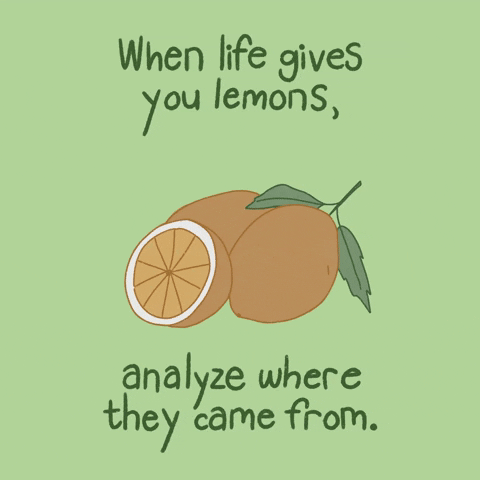
We are a part of our family, so when we focus on healing ourselves we are also healing our family
I spent a lot of time in my life feeling like I was responsible for breaking up half of my family. I understood why I needed to protect myself and put up the boundaries I did, but it always left me feeling like I was the problem child making a mess of everything.
I was talking about this with my incredible book editor, Charlotte, who then said the most life-changing thing to me. She said it isn’t about just debunking the idea that survivors are responsible for making a mess of their family. It’s that, regardless of whether we have a relationship with our families or not, we are a part of our family. No one gets to decide who is in, and who is out.
And as members of our family, when we keep ourselves safe, when we center our healing we are actually bringing healing to our families because we are undeniably a part of our family. Now, our families may not see it that way, but that truly doesn’t matter. We are changing what happens for future generations. I also believe that I am healing some ancestral trauma too, from survivors in my lineage who didn’t get an opportunity to live in their truth. I’m doing it for all of them too.
By focusing on your healing and what you need for your safety and wellbeing you are being a good family member. I promise.
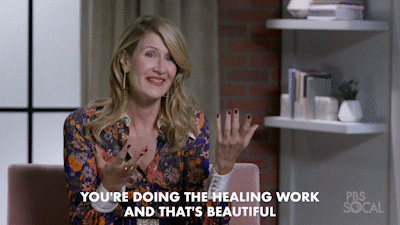
When it comes to healing from childhood sexual abuse, whose validation do we want and whose validation do we need?
Sydney Gal, you are doing such an incredible job already saying to yourself that you don’t need your family to believe you in order for you to believe yourself. That is amazing and such hard work.
I want to encourage all of us to ask ourselves, “Whose validation do we want?” and “Whose validation do we need?”
I think it is the most natural thing in the world to want the validation of our families. I will never tell you to stop wishing for that. But we simply cannot afford to need their validation, because they are being too impacted by their own bullshit and thousands of reasons for their denial. They may, unfortunately, never give us that validation, and their reasons, again, have nothing to do with us. And so, we cannot wait for them before we believe our own truth and offer ourselves healing and support.
But it is okay to need people to help us affirm our survivorship! Are there supportive friends, partners, members of our chosen families, therapists, community members or other survivors who can help us affirm our survivorship? We all need people, and there’s nothing wrong with that. And even though we do not have our family’s support, we never have to go this road alone. Who are people in our lives, who don’t have awful self-interests in denying our truth, who can be there for us? I promise I will always be here to affirm you all in your truth, so count me in!
We all deserve better as we heal from our childhood sexual abuse
We all deserve families who show up for us, who protect us, who support us in our healing, who prioritize our safety over their comfort. We all deserve that, and much more. But here we all are, finding ways to offer ourselves those things and finding people we can trust who can help us along the way. It’s fucking amazing. We are being the family we needed, for ourselves. And I’m very proud of all of us.
